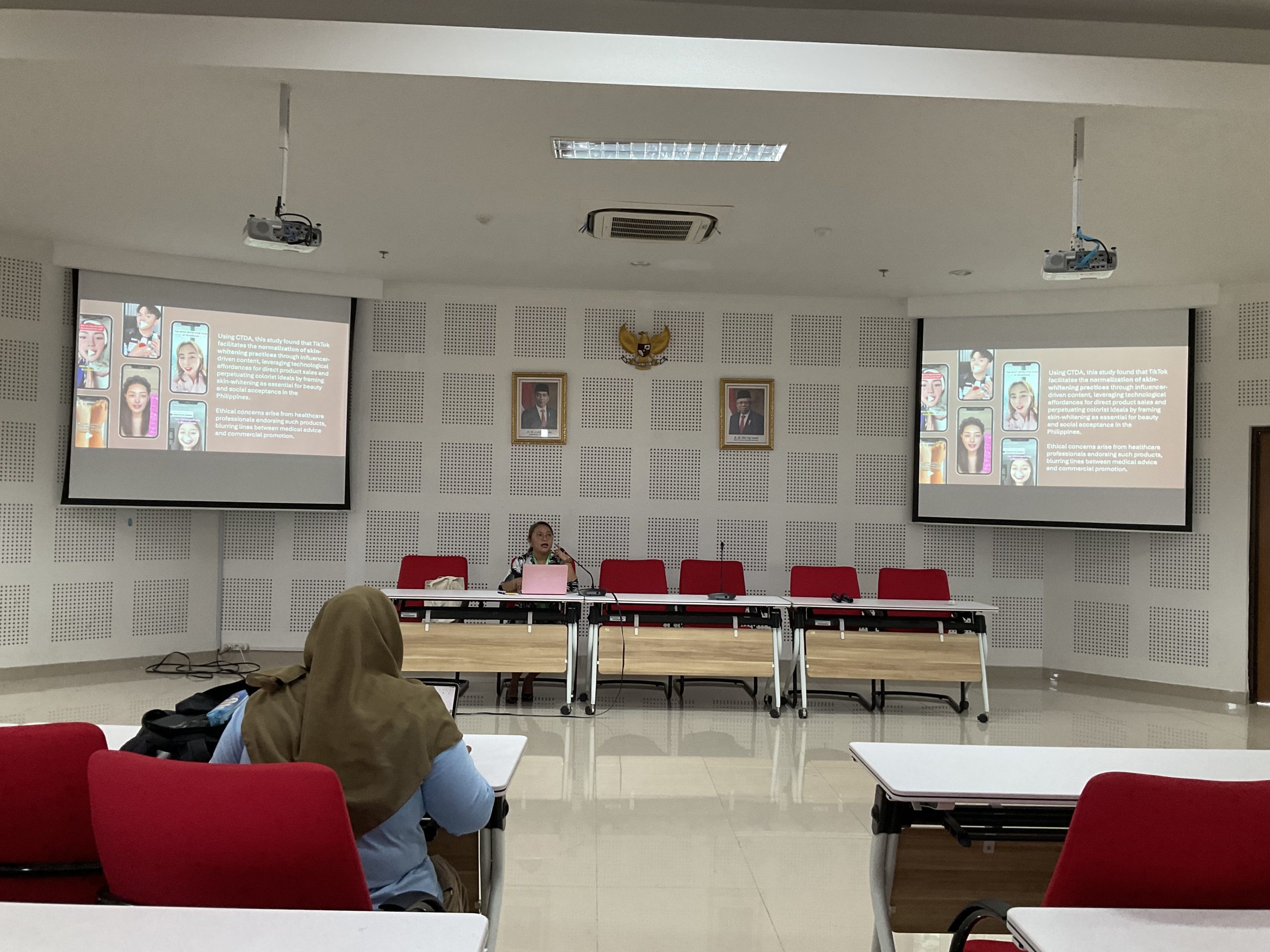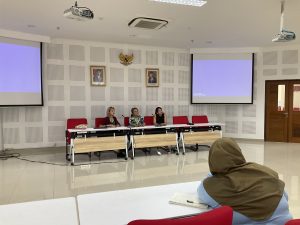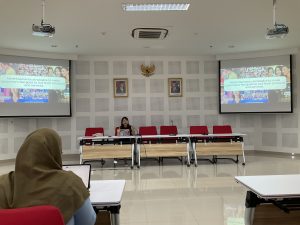
“Women are more frequently targeted for discrimination in various discourses offered by capitalism,” said Kate Ashlyn Narag Dayag-Nonay from the University of the Philippines at the AAS-in-Asia 2024 panel session at Gadjah Mada University, Yogyakarta. On the second day of the AAS-in-Asia event (10/07), Kate presented her research entitled Mobility and Beauty: Critical Discourse Analysis of Filipino Brand Campaign Against Ageism. In her research, Kate revealed that the capitalist industry is becoming increasingly innovative by campaigning against ageism or discrimination based on age.
The campaign against ageism is motivated by the industry’s saturation with the marketing narratives that are considered to have ageist tendencies, one of which is the ‘anti-aging’ claim in cosmetic products. This tendency of ageism positions ‘old’ as bad, weak, undesirable, and passionless. Therefore, the industry offers an alternative narrative, namely ‘ageless’, which shows that being ‘old’ does not mean losing one’s youth. “Being
old is a given, being young is a choice,” is the message of the campaign against ageism by brands in the Philippines. However, this message becomes problematic because in the end what they are doing is not fighting ageism, but a new form of ageism. In this new ageism, ‘old’ remains the target of discrimination when it does not meet the ‘youthful’ standards defined by capitalists. In other words, in this narrative, ‘old’ is positioned as a choice, rather than a definite biological process.

Other than Kate, many AAS-in-Asia 2024 participants are also concerned about the discrimination of women displayed on social media. One of them is Anansa R. Consumido-Dijian from Mapua University who presented how the marketing strategy of cosmetics titled ‘skin-whitening’ helped
to persuade the tendency of colorism or discrimination against differences in skin color. There was also Helena Diana Vida from Universitas Kristen Indonesia who presented her research on anti-hallyu discourse (Korean popular culture) and gender conflict in social media. Another was Yuna Hwang from Seoul National University who presented how technology facilitates collaboration and solidarity but at the same time fertilizes the practice of online gender-based violence. This shows that women are prone to gender-based discrimination on social media, whether it is driven by capitalists’ commercial interests or not. Therefore, the production of knowledge about how social media perpetuates gender discrimination is important because the more advanced the technology, the more subtle the forms of discrimination.

Author: Asmi Nur Aisyah
Photos: Asmi Nur Aisyah
SDG5 (gender equality)
